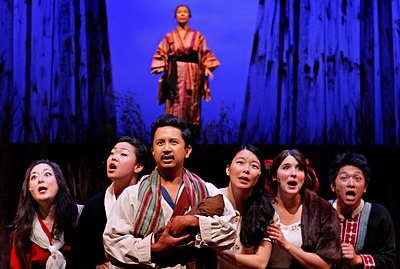The Imperative for Change

The statement below was issued by all members of the Racial Equity Funders Collaborative, a small group of local arts philanthropy leaders working together to advance racial and cultural equity within our own organizations and the communities we serve.
Minnesota and the Twin Cities are diverse communities and our arts should express the fullness of our cultural identities.
The demographics of our communities are changing and by 2040, the Twin Cities population will be 40 percent people of color according to projections reported by Minnesota Compass. Notably, the Dakota people were here long before the state of Minnesota and many other Native peoples, communities of color, and immigrants have made their homes here for a long, long time.
“Recurring incidents within the Twin Cities have demonstrated how people of color and Native peoples are repeatedly rendered invisible, omitted, excluded, or ignored in the narrative of Minnesota’s arts community.”
Racial Equity Funders Collaborative
A Funding Mismatch
Our arts should tell this story. Our arts should honor our many stories. But currently, in Minnesota and nationally, a majority of cultural production is focused on Western European stories and traditions. According to Not Just Money: Equity Issues in Cultural Philanthropy, a research study just released by Helicon Collaborative and conducted with funding from the Surdna Foundation, 2 percent of all national cultural institutions receive nearly 60 percent of all contributed revenue. These institutions—symphonies, opera companies, regional theaters, art museums, ballet companies and other organizations—are 925 of the largest arts institutions with audiences that are predominantly white and upper income. Similarly, as reported in the study, 23 Twin Cities arts organizations with budgets over $5 million received 77 percent of all contributions and earned revenue while 345 arts organizations with budgets under $1 million received approximately 9 percent of all contributions and earned revenue.
Recurring incidents within the Twin Cities have demonstrated how people of color and Native peoples are repeatedly rendered invisible, omitted, excluded, or ignored in the narrative of Minnesota’s arts community. We must disrupt and discontinue these behaviors if the full expression of our shared community is to be realized. To be relevant to our entire community and to continue to merit public support, arts organizations must learn to truly see and develop relationships with people of color and Native peoples and authentically and accurately integrate work by, for, and about these communities into programmatic offerings. But it is not just arts organizations that must change.
A Call for Change
Funders must also change. Foundations, donors, and other supporters of nonprofit organizations can no longer be complicit in perpetuating a system focused on a single narrative centered on white, Western European culture. As arts funders, we need to evolve our mindsets and skillsets—we need to understand the historic inequities in the funding of African, Latinx, Asian, Arab, Native American and Indigenous artists and arts organizations and commit to structurally changing our funding behaviors and norms (when possible, compensating for past neglect).
The Racial Equity Funders Collaborative (REFC) is a group of funders in the Twin Cities working to establish justice within the procedures, processes, and distribution of resources by philanthropic institutions and systems. Formed in 2013, REFC seeks to advance racial and cultural equity in philanthropy as informed by artists and arts and culture organizations in our communities. As a collaborative, we understand that the work of racial and cultural equity must start with ongoing learning and an understanding of history and research such as that reported in the Helicon study.
We know that ultimately, to advance racial and cultural equity, we must remove barriers in our grantmaking policies and practices and change the distribution of resources. Changing this system will require new ideas and actions. At a minimum, our grantees and partners should expect our giving to reflect the demographics of our community. We are identifying our next steps for advancing this work.
Amidst historical and ongoing wrongs and errors, we are learning how to be more inclusive, equitable, and accountable. We are changing how we work. We are also evolving an expectation that our grantees and partners in their institutions and their works will authentically reflect, embody, and honor the rich diversity of our community.
Arts for, by, and about all of our people. This is the imperative for our community. For this, we must change.
Submitted by,
Racial Equity Funders Collaborative
Members of the Racial Equity Funders Collaborative:
Maya Beecham, Bush Foundation
Vickie Benson, The McKnight Foundation
Justin Christy, Bush Foundation
Sharon DeMark, The Saint Paul & Minnesota Community Foundations
Takara Henegar, The Saint Paul & Minnesota Community Foundations
Arleta Little, The McKnight Foundation
Sarah Lovan, The McKnight Foundation
Kristen Marx, The McKnight Foundation
Glyn Northington, Propel Nonprofits
Eleanor Savage, Jerome Foundation
Erik Takeshita, Bush Foundation
Note: Propel Nonprofits partnered with the National Center for Arts Research on a related report detailing the financial obstacles unique to culturally led organizations in Minnesota. Read Kate’s blog on key findings and check out the full report, “Minnesota’s Culturally Specific Organizations: Equity in the Sector.”
Photo Credit: Michal Daniel

